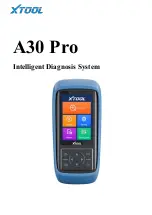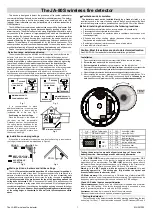
INSTRUCTIONS FOR:
BEAD SEATING TOOL
MODEL No:
TC900
Thank you for purchasing a Sealey product. Manufactured to a high standard this product will, if used according to these instructions and
properly maintained, give you years of trouble free performance.
1. SAFETY INSTRUCTIONS
IMPORTANT:
PLEASE READ THESE INSTRUCTIONS CAREFULLY. NOTE THE SAFE OPERATIONAL REQUIREMENTS,
WARNINGS & CAUTIONS. USE THE PRODUCT CORRECTLY AND WITH CARE FOR THE PURPOSE FOR WHICH IT IS
INTENDED. FAILURE TO DO SO MAY CAUSE DAMAGE AND/OR PERSONAL INJURY AND WILL INVALIDATE THE
WARRANTY. PLEASE KEEP INSTRUCTIONS SAFE FOR FUTURE USE.
3. CONTENT & ASSEMBLY
2. INTRODUCTION & SPECIFICATION
The easy and instant way to seat tubeless tyre beads. Dumps air into
tyre void forcing bead to seat against rim for inflation. Fully certified tank
with gauge and safety valve prevents over pressurising. Suitable for use
on cars, commercials, agricultural and ATV tyres.
Specification
Weight . . . . . . . . . . . . . . . . . 11.2kg
Capacity . . . . . . . . . . . . . . . . . .20ltr
Max. Pressure . . . . .145psi / 10bar
1.1.
GENERAL SAFETY INSTRUCTIONS
Ensure the bead seating tool is in good order and condition before use.
Before carrying out maintenance on the unit
ensure that the pressure has been vented.
Use only authorised attachments and parts. Unauthorised items may be dangerous and will invalidate your warranty.
Read the instructions regarding any accessory used with the bead seater.
Keep the work area clean and tidy.
Ensure the working area is well lit.
Always wear safety glasses and ear defenders when using the bead seater.
Keep children and unauthorised persons away from the working area.
DO NOT
use the bead seater to perform a task for which it is not designed.
DO NOT
deface, or remove, the certification plate attached to the bead seater.
DANGER! DO NOT
direct compressed air towards people or animals.
WARNING! The bead seater is a pressure vessel and the following safety measures apply:
DO NOT
use the bead seater without the safety valve fitted.
DO NOT
tamper with the safety valve,
DO NOT
modify or alter the bead seater in any way and
DO NOT
strap anything to it.
DO NOT
subject the bead seater to impact, vibration or heat and
DO NOT
allow contact with abrasives or corrosives.
Drain condensation from bead seater daily, inspect inside walls for corrosion every three months and have a detailed inspection carried
out annually. The bead seater shell must not fall below the certified thickness at any point.
3.1
Screw the locking ring onto the barrel and screw into the release
valve (Fig.2.C) as shown in Fig.1.
3.2
Fit the air line connection (not supplied) (Fig.2.B) into the inlet
valve (Fig.2.A).
WARNING!
The warnings, cautions and instructions discussed in this manual cannot cover all possible conditions and situations
that may occur. It must be understood that common sense and caution are factors which cannot be built into this product, but must
be applied by the operator.
Fig.1
Barrel &
Locking Ring
A
C
B
Fig.2
4. OPERATION
4.1
To Charge the tank.
4.1.1. Ensure that the release valve (C) is in the closed position as
shown in Fig.2.
4.1.2. Attach an air line to the air inlet connection on the bead
seater, open the inlet valve (A) and charge the tank to the
required pressure. The normal working pressure varies from
50psi to 130psi, depending on the size and condition of the tyre.
The bead seater can help inflate all passenger, truck and even
some small agricultural tyres. When used in the wheel in the
upright position it will normally require a pressure over 90psi to
set the bead.
4.2
Using the Bead Seater in the horizontal position.
4.2.1. Adjust the barrel, so that the barrel flange is on the top,
ensuring that the lock nut is secure.
4.2.2. Ensure that both beads of the tyre have been well lubricated
and position the wheel on to a stand, the valve stem should
be pointing upwards and the wheel should be off the ground
so that the lower bead should be already seated.
Original Language Version
TC900 Issue: 2 - 23/11/09




















